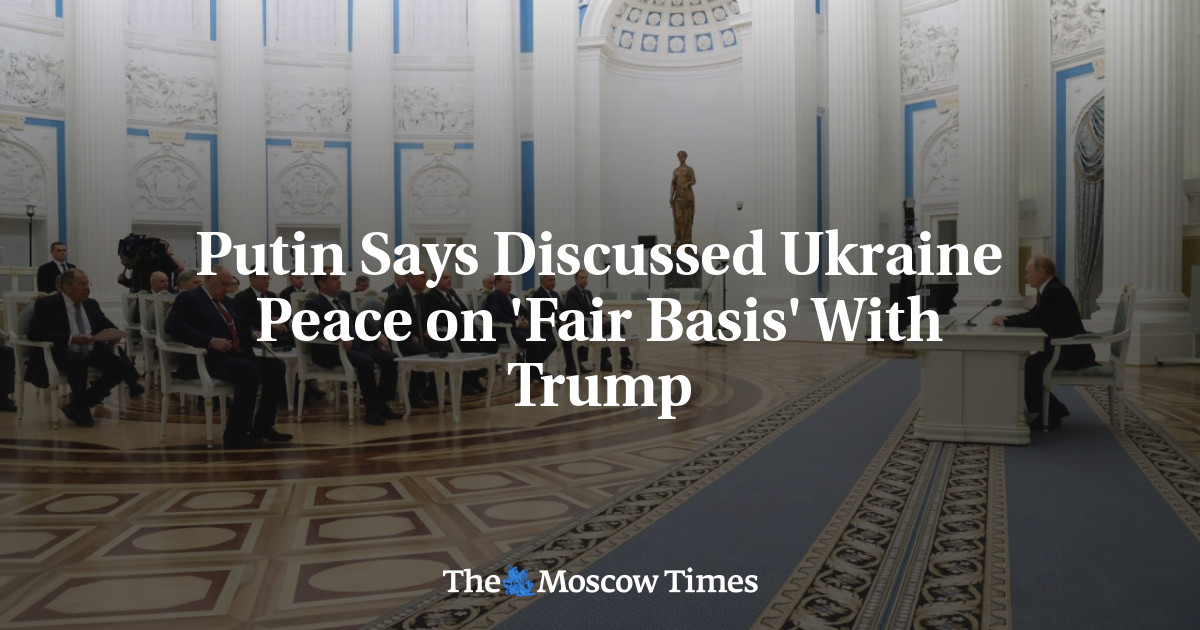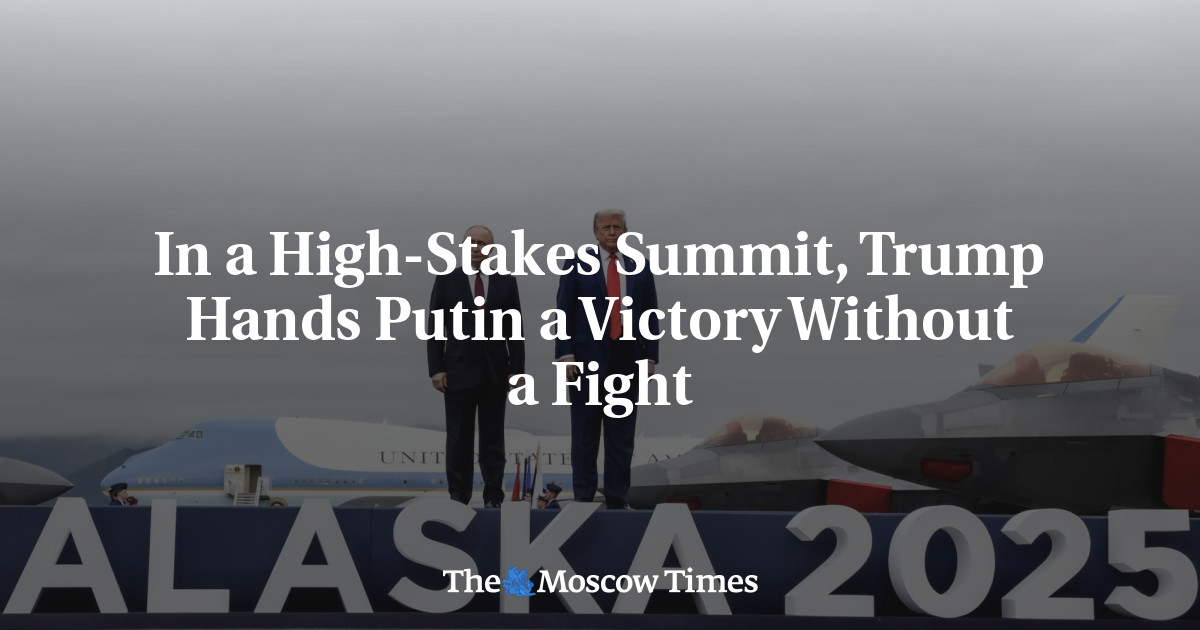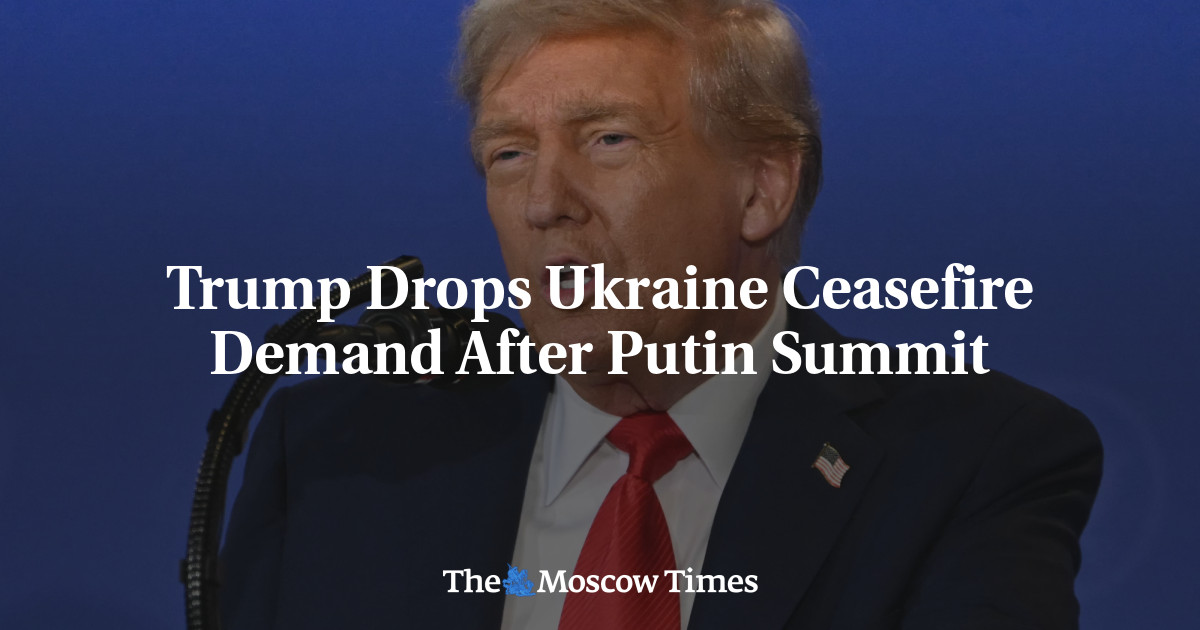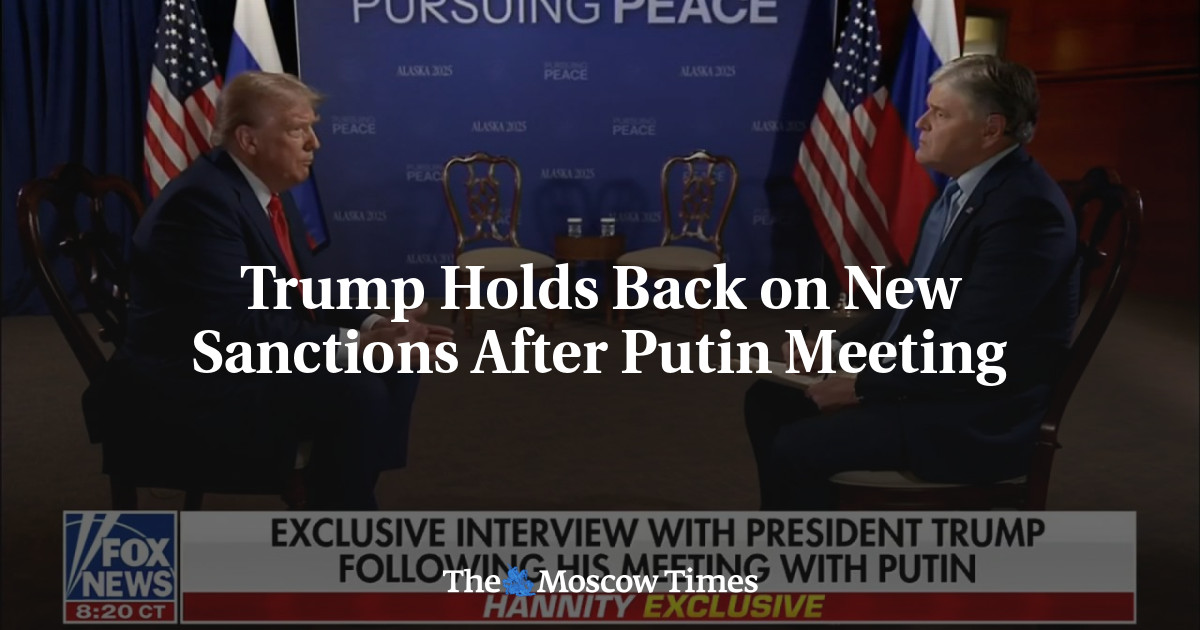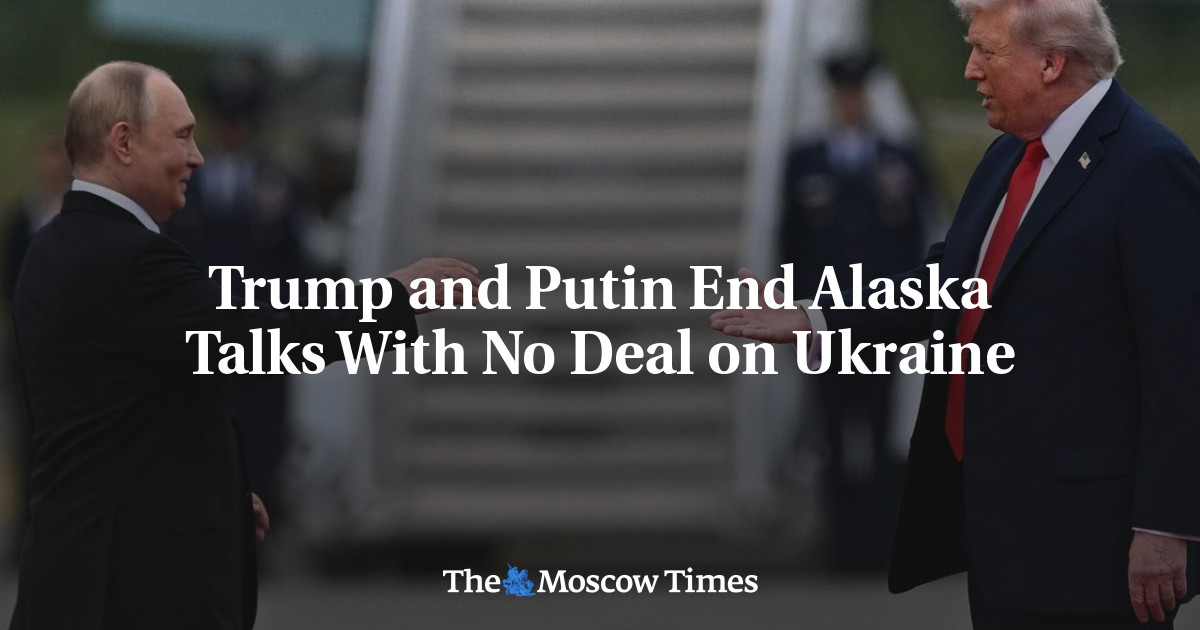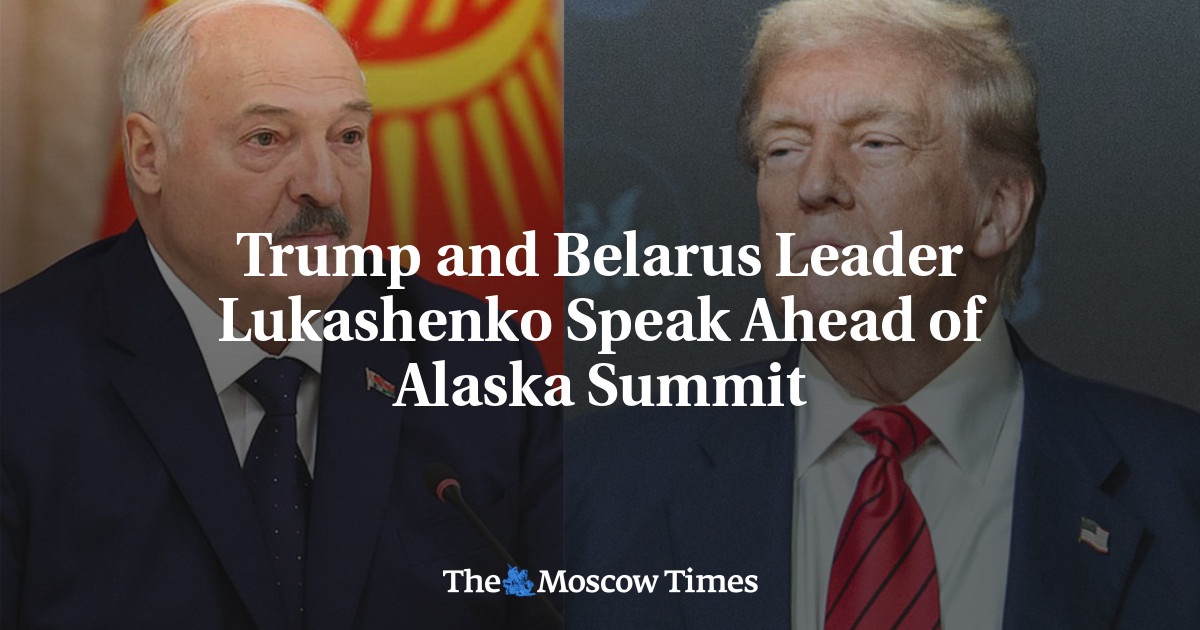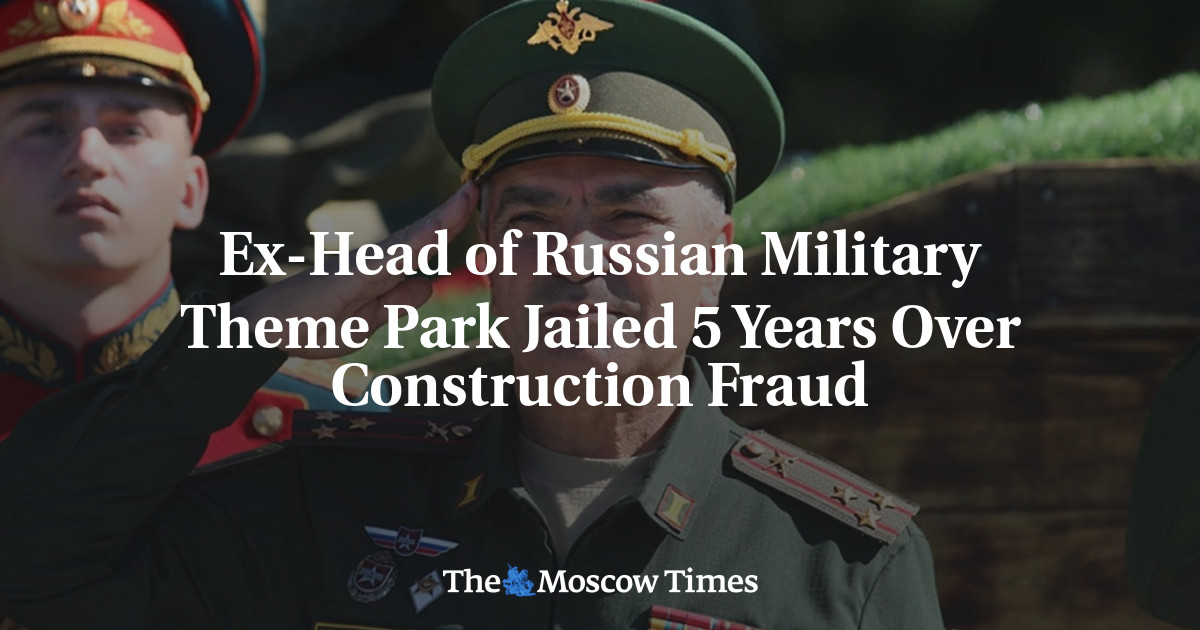This August marks five years since protests in defense of the Kushtau mountain in the republic of Bashkortostan, one of the few successful grassroots protests in Russia’s modern history.
The Moscow Times is marking the anniversary with a two-part series exploring the political context that set the stage for the protests and how they unfolded.
This is the second and final part of the series. Part one is available here.
On July 31, 2020, a group of Bashkir activists gathered at the base of the Kushtau mountain in Bashkortostan’s central Ishimbay district to celebrate Eid al-Adha, an Islamic holiday commemorating Prophet Ibrahim’s devotion to God.
A year prior, regional authorities granted the Bashkir Soda Company’s (BSK) license to commence limestone mining at Kushtau, one of the three geologically unique shikhan mountains considered sacred by many Indigenous Bashkirs.
The news had prompted immediate response from members of Bashqort, the republic’s leading Bashkir rights movement with thousands of followers and local chapters across 18 districts.
Bashqort organized a protest in the form of a yiyin, a traditional assembly used by Bashkir tribes to resolve political and social issues, whose participants resolved to defend Kushtau from BSK.
But much had changed in the year that passed since the yiyin.
The coronavirus pandemic was raging in Russia — its homegrown Sputnik V vaccine would be rolled out only five months later — and the Bashqort movement was de facto no more.
In May 2020, Bashkortostan’s Supreme Court outlawed Bashqort as an extremist organization, putting all of its affiliates at risk of criminal prosecution. To protect the followers, the movement’s leaders legally disbanded the organization.
Still, former activists of Bashqort were among those who arrived at Kushtau for Eid on that last day of July 2020 to find parts of the lash forest growing at the foothills of the shikhan already cut down in preparation for mining works.
The activists then decided to stay at Kushtau and set up a small tent camp blocking the way of developers. This move would pave the way for a days-long standoff between the campers and a private security company that BSK hired to remove them.
‘We didn't know what awaited us tomorrow’
Tensions escalated on Aug. 10, when a group of private security guards attacked the campsite at night. News of the attack quickly spread across the republic, prompting many supporters to get into their cars and drive to the campsite the next morning.
“At first, there were mostly locals and eco-activists from other districts of the republic in the camp,” recalled a Bashkir activist who requested anonymity due to risks posed by speaking to an undesirable organization. “Some people would take holiday leave at work to spend time there.”
Even more supporters began to gather at Kushtau in the evening of Aug. 15, when activists called for staging a volunteer clean-up day at the campsite — hoping to clean up the picturesque landscape at the Kushtau’s base not only from human waste, but also fences erected by BSK.
On the same day, BSK called on its employees to stage a counter-protest to affirm their position in favor of mining at Kushtau, which would guarantee job security for tens of thousands of residents of neighboring Sterlitamak, Bashkortostan’s second-largest city.
While employees of BSK gathered for the protest, the company’s security unit and the OMON military police waged another attack on the campsite.
The standoff soon escalated into direct physical confrontation as security services tried to tear down the camp and physically push protesters away from the site.
Protesters, among whom were women and the elderly, were severely beaten, and some were taken to police custody by the OMON unit.
“When I saw videos of those horrifying scenes of masked men and police pushing elderly women…and tents being overturned, I knew I could no longer be a passive bystander,” recalled the Bashkir activist who spoke with The Moscow Times.
“I persuaded my partner and friends to go to Kushtau. It was terrifying, of course…We had no idea what we would encounter there,” they added.
At least 80 activists were arrested at Kushtau on Aug. 15, while thousands more journeyed to the campsite from across Bashkortostan and neighboring regions.
“We spent the next night in endless debates about the benefits and drawbacks of nonviolent resistance. We quoted Gandhi, and it was so wonderful!” recalled the activist, whose fellow campers were people from different walks of life, ethnicities and ages — some in their 80s.
“We sat together on the grass at dusk, swatting mosquitoes, and we didn't know what awaited us tomorrow,” they said in a conversation with The Moscow Times. “But there was also a powerful educational aspect there. We all became experts in raw materials and soda production, protection of wildlife, and much more.”
In addition to new protesters, more police arrived at the site on the morning of Aug. 16.
The standoff continued as the crowd of Kushtau defenders marched back to the ravaged campsite, shouting slogans like “Kushtau yeshe” (“Live on Kushtau” in Bashkir) and "Shame on Khabirov.”
“It was very, very tense, damn, I still feel nervous just remembering it,” said the activist, who recalled the activists being pulled from the crowd at random by the police, who “pushed them to the ground and then carried them to a paddy wagon parked nearby one by one.”
“At one point, tear gas was deployed and everyone scattered in different directions, then buckets filled with water started flying around, including from the direction of the security forces,” they added. “It was really very scary. I was crying.”
Khabirov ‘gives his word’
Bashkortostan’s head Radiy Khabirov arrived at the campsite in the afternoon of Aug. 16.
“I am proposing today to stop fighting. Nothing good will happen to anyone [if this continues],” Khabirov said into a megaphone, addressing the protesters.
“My solution to you is as follows: today, everyone will leave this place, this mountain,” he went on. “And I give you my word right here that no one will go up this mountain until we find a compromise… Choose your leaders and let them come to me tomorrow, and we will talk.”
The image of Khabirov standing under the pouring rain while surrounded by furious protesters would forever go down in history as one of the symbols of this protest.
Following the meeting with Khabirov, both BSK and the protesters gradually vacated the site.
Breaking his promise, Bashkortostan’s head eventually refused to meet with protest participants. Bashqort’s “extremist” designation was cited as the chief reason for the decision.
Instead, the governor invited seemingly more lenient representatives of Bashkortostan’s civil society and cultural elite to a public roundtable at his office in the republic’s capital, Ufa, a few days after the protest.
“I don’t see the people who camped at the protest site here. We have no right to speak on their behalf,” prominent Bashkir playwright Zukhra Burakaeva famously said at the start of the meeting.
Meanwhile, the real defenders of Kushtau have been taken into custody. Among at least 30 activists sentenced to up to 15 days in prison after the protest was Fayil Alsynov, a former leader of Bashqort.
Moscow’s hand
On Aug. 26, 2020, President Vladimir Putin addressed the standoff at Kushtau in televised remarks.
“I believe the people who drew attention to [the problem] and expressed their distrust of what was going on at the site were mostly right,” Putin said. “There is no need to fuel conflict. There must be a dialogue with the people.”
On Sept. 2, Bashkortostan authorities granted Kushtau the status of a protected natural territory.
A few months later, Bashkortostan’s government was awarded a controlling stake in BSK.
In 2022, while public attention was focused on Russia’s full-scale invasion of Ukraine and its direct impact on domestic life, BSK was sold to a firm associated with Putin-linked billionaire brothers Boris and Arkady Rotenberg.
‘The Kushtau effect’
The defense of Kushtau marked a rare successful protest in Putin’s Russia. It even coined an entire socio-political term, “Kushtau effect,” used to describe a successful nonviolent resistance in an authoritarian setting.
“In Europe, people can go out to protest against the increased price of public transport fares and get the results they want. In Russia, everything is different: you protest, your civil action is brutally suppressed, you are humiliated, trampled, sentenced to 20 years in prison and left there to rot. This is what we've become accustomed to,” said the Bashkir activist.
“But there, on Kushtau, things were different. That feeling of victory was intoxicating. It was incredible. I don't know if I'll ever experience something like that again,” the activist added.
Observers attribute the success of Kushtau to several factors.
Some point to the fact that the unique environmental issue allowed for a union of a very diverse group of people who would otherwise find themselves on opposite sides of the political spectrum.
“Both local residents and the national movement led by former leaders of Bashqort came together at Kushtau,” another prominent activist from Bashkortostan explained in a conversation with The Moscow Times, requesting anonymity. “There were environmental activists, feminist activists, LGBT activists and many others.”
“My friends who went to the protest were Russians, Ukrainians, Tatars — all ethnically non-Bashkir,” added another activist. “I always asked them what they felt there, at Kushtau. They all said they felt a sense of the people's spirit, that they felt the togetherness. One Russian friend even told me: ‘I felt like a batyr [Bashkir for warrior]’.”
 Activist Fayil Alsynov (R) with Kushtau defenders.
mbk-news
Activist Fayil Alsynov (R) with Kushtau defenders.
mbk-news
Other observers point to a key role played by Bashqort, whose reputation outlasted its on-paper presence.
“It is impossible to gather even 5,000 people by offering money in such a closed, oppressive political atmosphere,” said Khabirov’s former PR chief Rostislav Murzagulov.
“Bashqort was a grassroots movement, a broad movement. It brings great honor to guys like Gabbasov and Alsynov because, at some point, they found the right words to touch people's hearts,” Murzagulov told The Moscow Times.
In Bashkortostan, the now-exiled Murzagulov is known for his unfiltered criticism of Kushtau defenders.
At the time of the protest, Murzagulov headed the board of directors of Bashinform, the region’s flagship state news agency. Activists and their supporters saw him as the chief architect of a media smear campaign against the protesters, which falsely accused them of harboring sympathies for Islamic extremist groups.
Five years later, despite switching sides to the opposition, Murzagulov has not changed his position.
Regardless of the true reason that shaped “the Kushtau effect,” the event paved the way for future mass protests in the region, including the February 2022 rally against a French-backed beekeeping farm that threatened unique local bee species and multiple yiyins against illegal gold mining in Bashkortostan’s Baymak district.
The anti-gold mining protests, which took place in April 2023, triggered a devastating chain of events that would lead to modern Russia’s largest political trial, the Baymak case.
A Message from The Moscow Times:
Dear readers,
We are facing unprecedented challenges. Russia's Prosecutor General's Office has designated The Moscow Times as an "undesirable" organization, criminalizing our work and putting our staff at risk of prosecution. This follows our earlier unjust labeling as a "foreign agent."
These actions are direct attempts to silence independent journalism in Russia. The authorities claim our work "discredits the decisions of the Russian leadership." We see things differently: we strive to provide accurate, unbiased reporting on Russia.
We, the journalists of The Moscow Times, refuse to be silenced. But to continue our work, we need your help.
Your support, no matter how small, makes a world of difference. If you can, please support us monthly starting from just $2. It's quick to set up, and every contribution makes a significant impact.
By supporting The Moscow Times, you're defending open, independent journalism in the face of repression. Thank you for standing with us.
Continue
![]()
Not ready to support today?
Remind me later.
 (1).png)
 5 hours ago
1
5 hours ago
1
